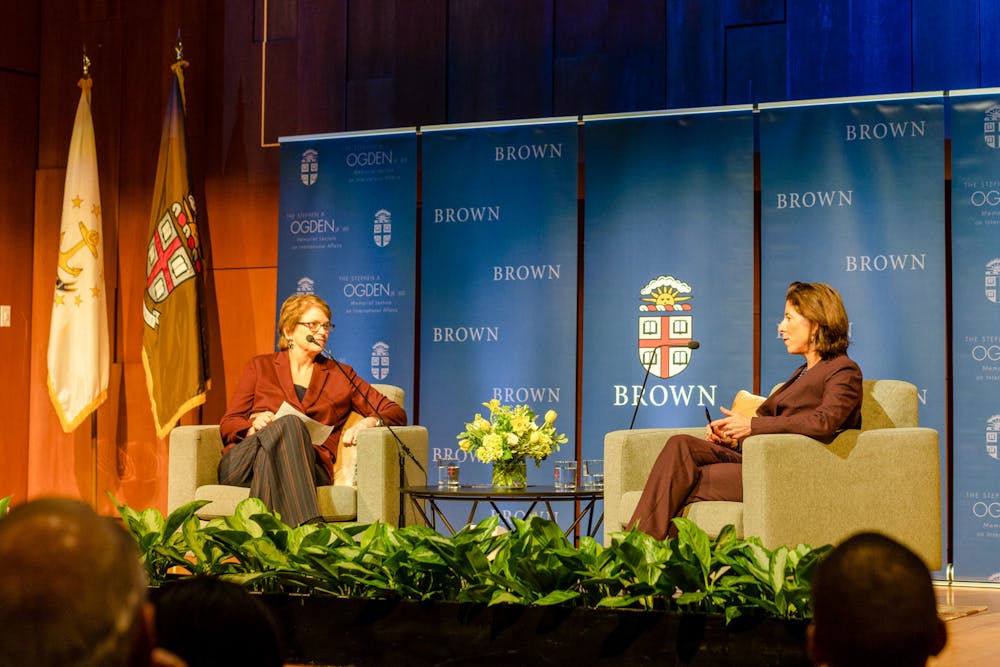United States Secretary of Commerce and former Gov. of Rhode Island Gina Raimondo encouraged domestic investment and innovation during a speech to the Brown community in the 101st Stephen A. Ogden Jr. ’60 Memorial Lecture in International Affairs. The speech, entitled “Growth, Innovation, and Equity: Ensuring American Global Competitiveness in the 21st Century,” took place in Salomon Center Auditorium Tuesday.
Before beginning her tenure as secretary of commerce in March 2021, Raimondo served as governor of Rhode Island from 2015 to 2021 and general treasurer of Rhode Island from 2011 to 2015. She had grown up in Providence before attending Harvard.
Raimondo identified four objectives that the United States could pursue to enhance its economic competitiveness: growth, innovation, equity and the reinvigoration of strong relationships with allies. These, she said, have all faced threats in the past decades, causing America to fall behind when compared to other countries. She believes a central root of this problem is the decline in domestic manufacturing.
“Here’s the brutal reality,” Raimondo said. “You cannot have vibrant long-term economic growth without a vibrant manufacturing sector.” Manufacturing, she explained, drives “innovation, research and development, growth and job creation.” She attributed her decision to accept her current position as secretary of commerce to her desire to revitalize the sector and the American economy.
To illustrate the trajectory of the American economy over the past few decades, Raimondo cited the decline of the domestic semiconductor industry, which emerged in Silicon Valley in the latter half of the 20th century. The United States used to produce about 40% of the world’s semiconductors, a figure that now stands at 12%.
“If that doesn’t get your attention, I don’t know what will,” Raimondo said. “That is downright scary, it’s vulnerable, it’s a risk to our national security.” The solution, she says, is to significantly enhance American research and production in the industry.
Political divisiveness has skyrocketed in the past decade, a change that, in the eyes of Raimondo, stems in part from the loss of 9 million manufacturing jobs and a decline in “small and medium manufacturers.” In times of uncertainty and hardship, people turn to more radical ideologies, she said.
Raimondo also reiterated the importance of maintaining strong relations with allies, citing the reaction to Russia’s invasion of Ukraine as an example of effective cooperation among like-minded countries.
“What we’re doing is truly unprecedented in … the way we’re doing it with the whole world,” Raimondo said. She noted that international economic sanctions are designed specifically to limit Russia’s military potential, given its reliance on foreign companies for vital supplies.
Following the lecture, President Christina Paxson P’19 spoke with Raimondo in a question-and-answer session that featured questions from students. Raimondo answered questions about the relationship between labor shortages and lack of equity, Russia’s response to the sanctions and the differences between working in the Rhode Island government versus the federal government.
“There is no average day” for the U.S. secretary of commerce, Raimondo said.
Charlie Clynes was the managing editor of digital content on The Herald's 134th Editorial Board. Previously, he covered University Hall and the Graduate Labor Organization as a University News editor.





